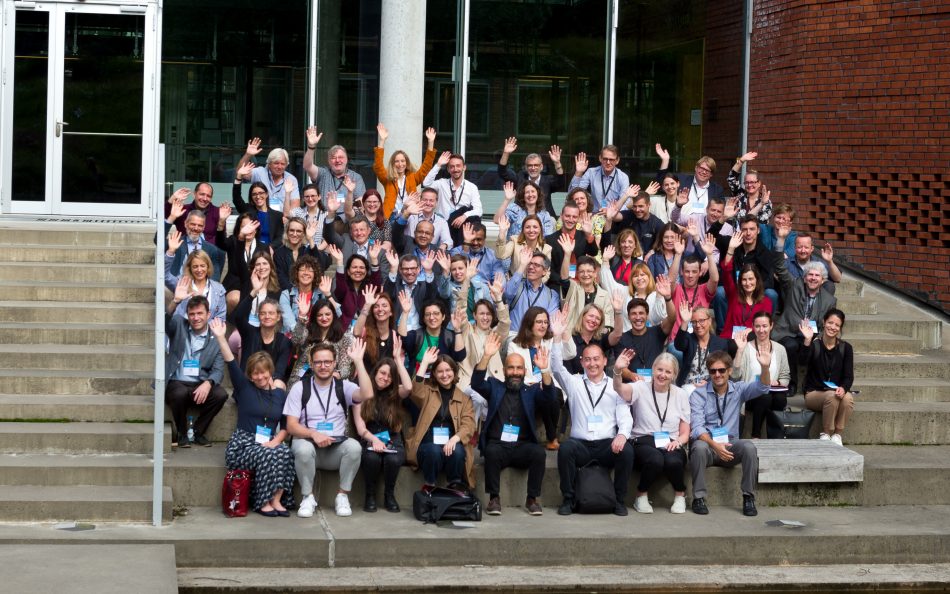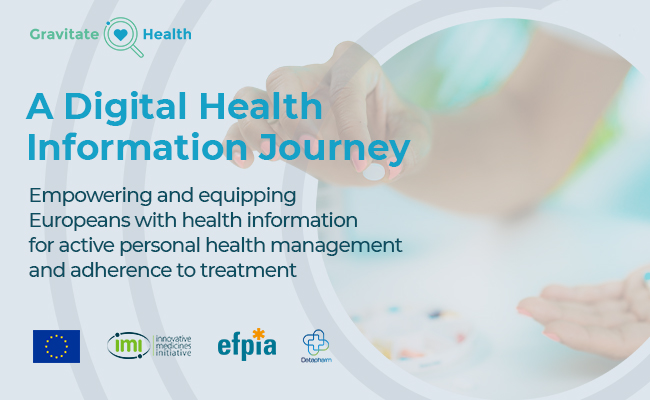Information about medicines, including package instructions (“paper in the pack”), labels, and details about the product, comes in the form of paper and is attached to each medicine you get in the EU.
This is the focus of Gravitate Health, which started in 2020, spans five years, and aims to involve patients in their healthcare decisions. The goal is to provide accessible and reliable digital information about medicine tailored to individual needs, health context, and literacy level.
Gravitate Health is a collaboration between 40 partners from Europe and the US, led by the University of Oslo and Pfizer. The project is funded by the Innovative Medicines Initiative (IMI) and brings together partners from civil society, academia, and industry across 15 countries. Trifork is proud to be one of the 40 members.

Every year in Europe, around 200,000 deaths are estimated to be linked to poor medication adherence, resulting in avoidable hospitalizations and costly treatments. Fragmented or unavailable medical information can lead to risks that patients are unaware of.
To tackle these challenges, Gravitate Health will develop and test an integrated health IT solution focused on citizens. The solution aims to improve the accessibility and understanding of health information from reliable sources, starting with approved Electronic Product Information (ePI) and Electronic Health Record International Patient Summary (EHR-IPS). This project aims to create an open-source digital platform supporting the Gravitate Lens (G-Lens) functionality, providing recommendations to strengthen access, understanding, and future use of digital services like ePI. The ultimate goal is to reduce risks and better meet the patient’s needs.

The Gravitate Lens (G-Lens) is like a powerful magnifying glass for healthcare information. It’s a smart feature built into the digital platform that helps you find the most relevant and reliable information about your health and medicines. Just like a lens helps you see things more clearly, the G-Lens helps you understand your health better and make informed decisions.
Trifork was invited to be part of this research project due to its position as the provider of The Shared Medication Record and the Medication Card App in Denmark. This offers a unique opportunity to prototype the solution in a Danish setup. Trifork’s expertise in HL7 and FHIR at an international level also contributed to its involvement. The aim is to create a citizen-focused solution that can work across Europe, not limited to Denmark.

To ensure easy access to reliable and up-to-date Electronic Medicinal Product Information (ePI) for patients and healthcare professionals, The Vulcan HL7® FHIR® Accelerator and Gravitate Health have released a FHIR® Implementation Guide (IG) for ePI. This guide outlines the process of creating and exchanging Medicinal Product Information using HL7’s standard for Fast Healthcare Interoperability Resources (FHIR).
FHIR enables interoperability between ePI and healthcare use cases like ePrescribing, eHealth records, and data sharing across devices. This standard makes it easier to create patient-focused digital information tools, empowering patients and promoting the safe use of medicines for better health outcomes and improved quality of life.
In conclusion, Gravitate Health’s research project, in collaboration with Trifork and other partners, aims to revolutionize healthcare by providing accessible, reliable, and patient-centric digital tools.
This project has the potential to improve patient outcomes, reduce risks, and enhance overall healthcare experiences for citizens across Europe.
Latest Update from Gravitate Health
A Journey from Paper to Fingertips with FHIR ePI: Transforming Medicinal Information
Subscribe
Find out the latest news first